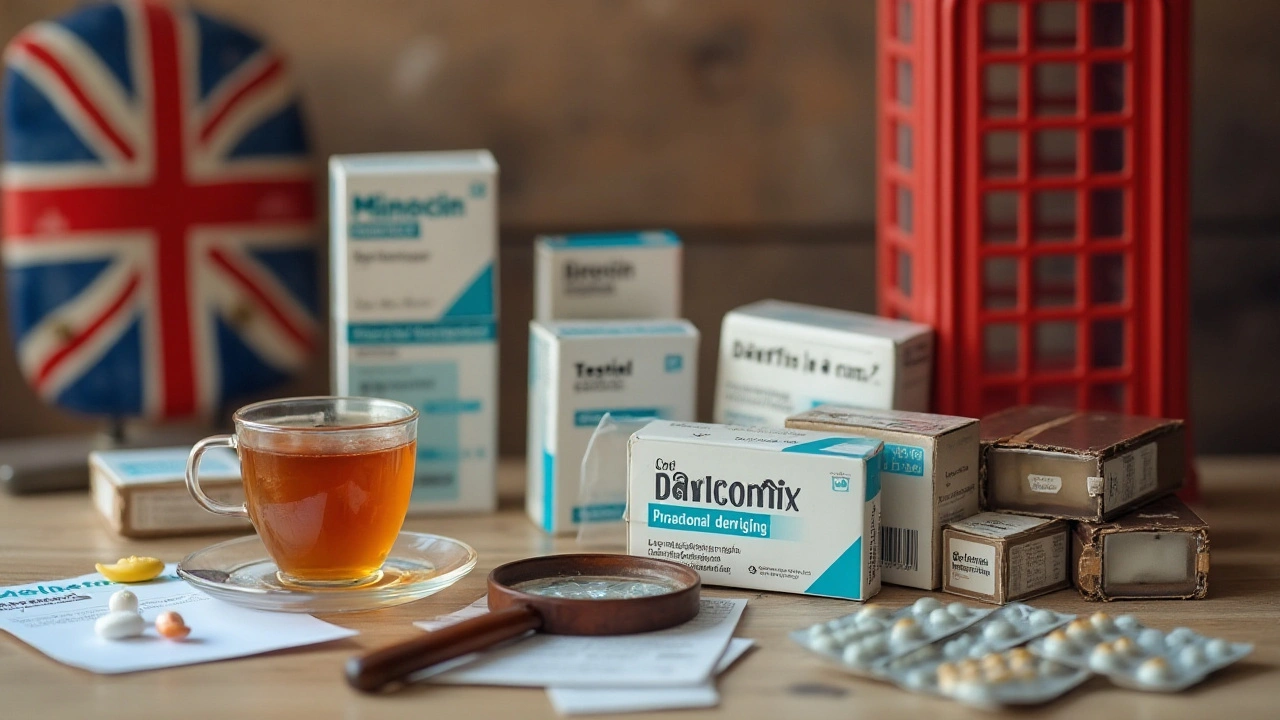Vibramycin alternatives (Oct 2024): 5 practical options
If Vibramycin (doxycycline) isn’t a fit — allergy, side effects, or resistance — there are workable swaps. This archive month we reviewed five alternatives, how they’re used, what they do better, and where to be cautious. No fluff, just the facts to help you talk with your prescriber or pharmacist.
Quick comparison
Here are the five options covered, with a short take on each:
1) Minocycline (Minocin) — Another tetracycline that often works well for acne and some skin infections. It gets into skin and nervous tissue better than doxycycline, which helps in stubborn acne cases. Downsides: more dizziness or vertigo for some people and a rare risk of long-term skin discoloration.
2) Demeclocycline (Declomycin) — Still a tetracycline family member, but now used less for routine infections. It’s sometimes chosen when other tetracyclines aren’t ideal. Note: it can cause strong photosensitivity (sunburn risk) and has limited modern use for many common infections.
3) Tigecycline (Tygacil) — A broad-spectrum option for tough, resistant infections. It’s given by IV and reserved for complicated abdominal or skin infections when oral drugs won’t work. Be aware: it’s hospital-only for most patients and can cause nausea.
4) Omadacycline — A newer oral and IV tetracycline-like drug approved for community-acquired pneumonia and skin infections. It’s designed to work even when some bacteria resist older tetracyclines. Good if resistance is a concern; cost and access can be limiting factors.
5) Azithromycin (Z-Pak) — From a different class (macrolide), this is useful for certain respiratory infections and when doxycycline isn’t appropriate. It’s easy to take and tolerated well, but growing resistance for some bacteria makes it less reliable for certain infections.
When to pick each option
Think about the infection type, where it’s located, and your health history. For acne or skin infections: minocycline shines. For hospital-treated, resistant bugs: tigecycline or omadacycline may be the right call. If the problem is respiratory and doxycycline is off the table, azithromycin is an option — but check local resistance patterns. If you’ve had bad sun reactions before, avoid demeclocycline.
Bottom line: alternatives exist and each has a clear role. Talk with your prescriber about allergies, pregnancy (tetracyclines are usually avoided), kidney or liver issues, and drug interactions. If you want, bring this page to your next appointment or ask your pharmacist to compare side effects and routes (oral vs IV) so you can pick what fits your lifestyle and the infection being treated.


